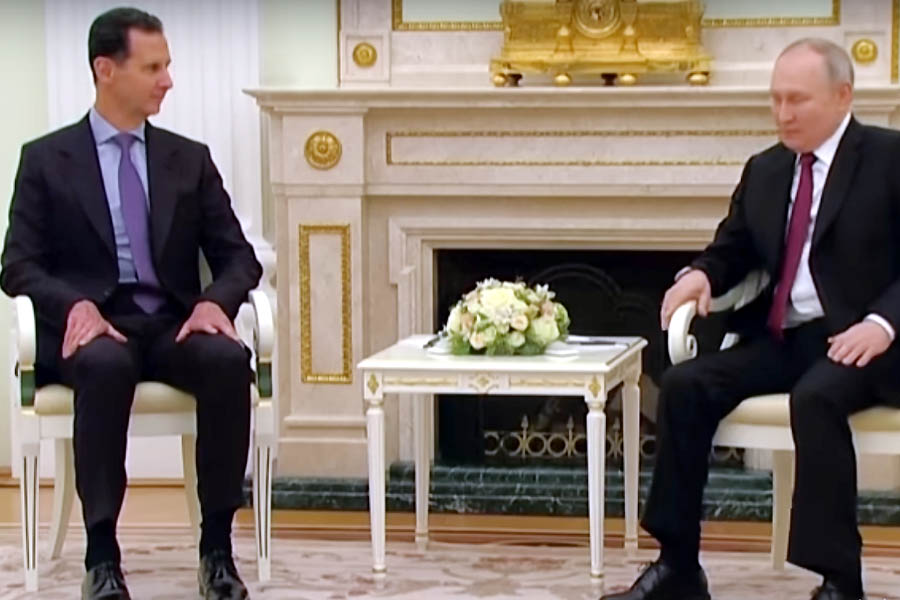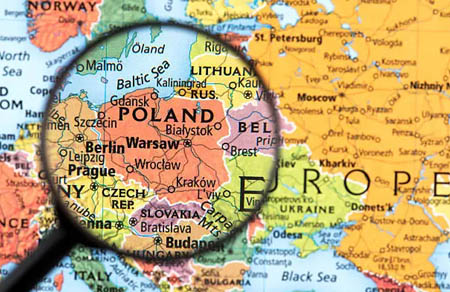
Bashar al-Assad: Syria's Political Shift and Global Alliances
December 17, 2024The fall of Damascus marks a seismic shift in the Middle East, igniting waves of uncertainty, opportunity, and risk. The collapse of Bashar al-Assad’s regime has not only redrawn Syria’s political landscape but also reshaped regional and global alliances, presenting a series of cascading consequences.
Assad's Denial and Russia's Moves
Eight days after Damascus fell to Hayat Tahrir al-Sham (HTS) forces, Bashar al-Assad denied fleeing Syria, claiming he was directing operations at Russia’s Hmeimim airbase. Yet, satellite images of Russian forces dismantling their military installations in Syria tell a different story. The swift evacuation of critical assets suggests Moscow is recalibrating its Middle Eastern strategy amid Assad’s political demise.
Russia’s potential withdrawal could leave a vacuum in Syria’s fragile balance of power. The implications are profound: Moscow’s diminished presence may embolden Islamist factions, destabilize neighboring states, and disrupt Iran’s regional ambitions.
Iran on the Defensive
The loss of Assad—Tehran’s staunch ally—represents a staggering blow to Iran’s regional influence. Syria was a critical conduit for Iranian arms to Hezbollah and a frontline in its struggle against Israel. The collapse of Assad’s regime threatens to isolate Iran further, especially as it faces mounting domestic and international pressures.
Iran’s Supreme Leader, Ayatollah Ali Khamenei, framed the fall of Assad as a joint U.S.-Israeli conspiracy, vowing the “resistance front” would persevere. However, with Israel ramping up covert operations and Gulf states solidifying ties with the West, Iran’s options appear increasingly constrained. Observers speculate that Tehran may accelerate its nuclear program in a bid to reclaim strategic leverage.
Israel's Strategic Calculus
Israel, quick to capitalize on the situation, announced plans to double settlements in the Golan Heights while establishing a “sterile defensive zone” in southern Syria. Prime Minister Benjamin Netanyahu’s rhetoric underscores a broader strategy to reshape Israel’s regional standing.
“The Golan Heights will remain an inseparable part of Israel,” declared Netanyahu, who framed the developments as an opportunity to strengthen Israel’s security and economic foothold. However, critics warn that these moves risk inflaming tensions with Syria’s transitional government, led by interim Prime Minister Mohammed al-Bashir.
A Fragile Transitional Government
HTS’s formation of a transitional government under al-Bashir has sparked cautious optimism and skepticism. The group’s Islamist roots and UN designation as a terrorist organization complicate international recognition. Yet, countries like Qatar have reopened diplomatic channels, signaling a potential shift in how the global community engages with Syria’s new leadership.
The United Nations has urged an “inclusive transition,” while Turkey has hinted at supporting reconstruction efforts. Still, questions about HTS’s ability to govern a fractured nation—and its commitment to democratic norms—loom large.
Refugees and Reconstruction
Syria’s humanitarian crisis remains staggering. Over 12 million Syrians have been displaced, with Turkey, Lebanon, and Germany hosting the largest numbers. As sanctions impede economic recovery, calls to lift restrictions have intensified, but Western powers remain wary of legitimizing HTS.
A Turning Point for the Region
The fall of Assad signals more than the end of a 24-year reign; it heralds a transformation of Middle Eastern geopolitics. As Israel asserts dominance, Iran grapples with isolation, and Russia reconsiders its commitments, the regional order is in flux. Britain, France, and Germany have strongly condemned Iran’s nuclear escalation, urging it to halt uranium enrichment activities to prevent further tensions.
The fall of Bashar al-Assad’s regime in Syria poses a critical challenge to Iran’s influence in the region, potentially weakening its power projection and alliances.
Only time will reveal whether this pivotal moment leads to a new dawn for Syria or a deeper descent into chaos. Stay tuned for further updates at Global Post Headline.
Read More From Us
- 🌟🌟🌟🌟🌟 For more International Breaking News visit us at International News
- 🌟🌟🌟🌟 For More Russia-Ukraine War updates, click here
- 🌟🌟🌟🌟🌟 For more International Trade Business news, hit here
Tags: #BasharAlAssad #SyriaPolitics #MiddleEast #PoliticalShift #GlobalAlliances #SyriaTransformation #MiddleEasternPower #GlobalPolitics #SyriaConflict #AssadLeadership #PoliticalDynamics #InternationalRelations #MiddleEastInfluence #GlobalPostHeadline
Thank you for reading: globalpostheadline.com





